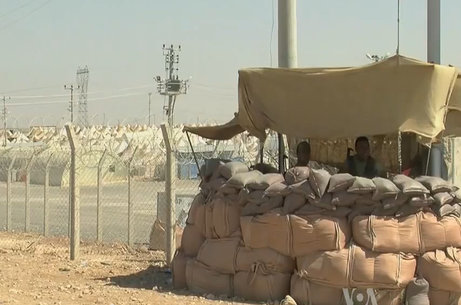
Can foreign aid be neutral? Who should deliver aid in situations like Ukraine, Syria or Palestine? Does all aid come with baggage? A workshop on foreign aid will be the centrepiece of the Gates Alumni Weekend which begins on 18th October.
Can foreign aid be neutral? Who should deliver aid in situations like Ukraine, Syria or Palestine? Does all aid come with baggage? A workshop on foreign aid will be the centrepiece of the Gates Alumni Weekend which begins on 18th October.
Ela Drazkiewicz will lead the session. She says: “Recent months and international developments in Ukraine, Syria, or Palestine have once again brought people’s attention to the problems concerned with humanitarian crises. From various sides we can hear calls for humanitarian intervention. But who should deliver aid, and how? Who has the capacity to do that? Whose aid will be welcomed and accepted by recipients?”
Neutrality is one of the central planks of development and humanitarian aid practice, but she will ask if aid without “agenda” is possible. “Perhaps, the regimes of neutrality which govern the world of aid agents only mask political, religious and other connotations and push their aid ideology to the foreground,” she says. “In the light of these contemporary politics of aid, what can we make of a Russian convoy supposedly taking humanitarian aid to Ukraine, accusations of the United Nations Relief and Works Agency not being “neutral enough” or commercial companies like Total getting involved in aid initiatives to South Sudan?”
The workshop will debate whether the paradigm of neutrality in aid has ended and if the current global situation requires new solutions. It will also attempt to understand the various positions and agendas of different stakeholders involved in the process of aid delivery and distribution, from international aid agencies, NGOs, governments and local authorities to military forces and other parties involved in the conflicts.
Ela [2007] did her PhD in Social Anthropology and is now a Marie Curie Fellow in the Anthropology Department of Maynooth University in Ireland. The session begins at 1.15pm.
Other sessions at the Weekend include small group discussions on subjects such as how to create a 30-second ‘elevator pitch’, the challenges of balancing a career with having a family, how to get a post-doc, leaving bench science for industry and how to write a CV. There will also be a discussion about how Alumni and scholars can better use the network of the Gates Cambridge Alumni Association, which has organised the Weekend, for mentorship opportunities.
To register, click here.
Picture credit of Syrian refugee camp: Wiki Commons and Voice of America News.












